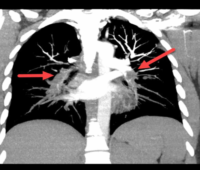

If you suffer from Irritable Bowel Syndrome (IBS), then you know that the symptoms can be debilitating at times and often include abdominal pain and frequent bowel movements. The condition impacts about 5% of the population across the world with stress and some types of food being the biggest triggers of the symptoms associated with the disease.
Types
There are about four types of IBS that you could have. One consists of constipation while another consists of diarrhea. Another is a mix of the two issues while the fourth type of IBS is unsubtyped. IBS is classified as a condition that impacts the gastrointestinal system. It’s believed that there are disturbances between the brain and the gut that result in constipation, diarrhea, or both. Unfortunately, there isn’t a clear pathology of the disease, which can make it a difficult condition to diagnose and treat. Depending on the severity of the disease, the quality of life that some people have can be lower than those who have other medical conditions like diabetes.
What Can Trigger IBS?
There are a few different things that can trigger the symptoms that you have. It was once thought that foods with gluten in them were the primary triggers, but there are others that tend to be at the forefront. If there’s an infection in your body, especially your gut, such as gastroenteritis, then you’ll usually see your symptoms begin to flare. Abdominal surgery can trigger symptoms as well as stress from events in your life that are emotional. Genetics can also play a role in the severity of your symptoms.
Removing Foods
A study in Sweden removed foods with gluten as well as carbohydrates that were considered fermentable from the diets of those with IBS. The fermented carbohydrates are often found in legumes and vegetables. It’s believed that these carbohydrates could release more bacteria in the gut, which can lead to bloating, pain, and abnormal bowel habits. Removing gluten from the diet didn’t really make a difference nor did removing fermentable carbohydrates. Symptoms do vary from one person to the next, and those who have underlying medical conditions can sometimes react differently even when gluten is removed along with other foods and triggers.














Leave a Reply
Be the First to Comment!
You must be logged in to post a comment.
You must be logged in to post a comment.